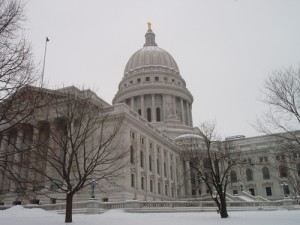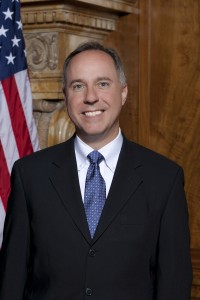 The University of Wisconsin-Madison will host the UW System Board of Regents today and tomorrow, Thursday and Friday, February 4 and 5. All meetings will take place in Varsity Hall in Union South, 1308 West Dayton Street. Livestream coverage of the meeting is available here.
The University of Wisconsin-Madison will host the UW System Board of Regents today and tomorrow, Thursday and Friday, February 4 and 5. All meetings will take place in Varsity Hall in Union South, 1308 West Dayton Street. Livestream coverage of the meeting is available here.
The regents meet in committee Thursday morning, and the full board meets Thursday afternoon and Friday morning. UW-Madison Chancellor Rebecca Blank will address the regents at 1:15 pm, followed by a board discussion of the 2015-17 biennial budget proposal.
The Education Committee will discuss sabbatical guidelines for 2016-18 and hear a report from UW-Madison Provost Sarah Mangelsdorf on educational updates. On Friday, the committee, along with all regents, will discuss the engineering needs in the state, including a proposal to create new engineering programs in northwestern Wisconsin.
The Business and Finance Committee will hear the 2014 Finance Report, the 2014 Annual Trust Funds Report, and the Information Technology Report.
The Capital Planning and Budget Committee will hear presentations from UW-Madison and UW-Parkside on their respective campus master plans.
The Research, Economic Development, and Innovation Committee will hear updates on UW-Madison’s research enterprise and the Wisconsin Economic Development Corporation partnership.
On Friday, the regents will hear several reports, including UW-Madison’s NCAA Division I Athletics Report. UW-Madison professor Erik Brodt will receive a 2015 Board of Regents Diversity Award.




